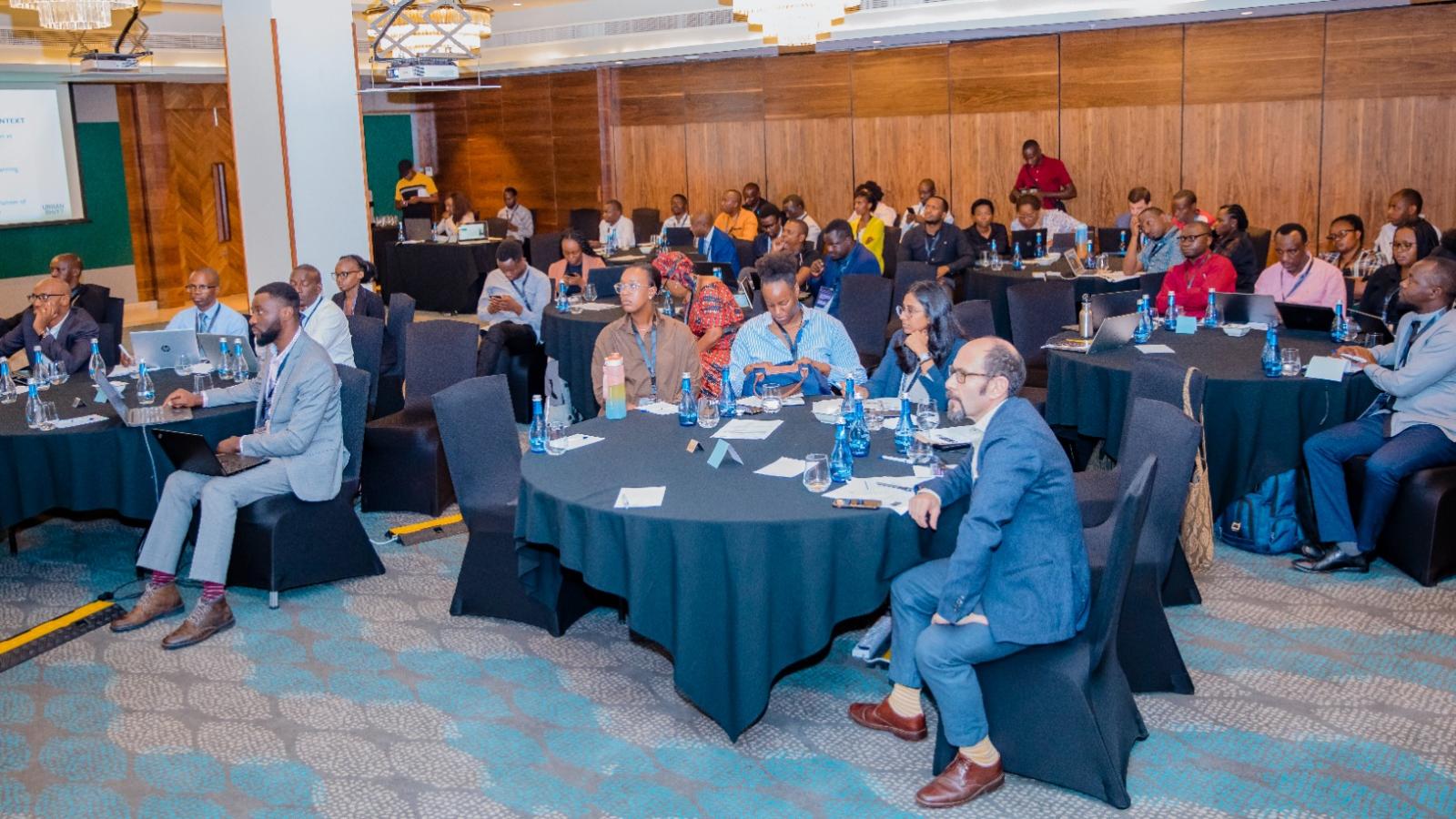Analysis
Flood Resilience and Biodiversity in Focus: Rwanda’s Vision for Sustainable and Resilient Cities
The first Dialogue in Rwanda brought together national and local governments, development partners, and experts to develop strategies for flood resilience and biodiversity in Rwandan cities, aligning local priorities with national urban policies.
By Karishma Asarpota and Saheel Ahmed (ICLEI - Local Governments for Sustainability)
Cities around the world are increasingly facing climate challenges, making the need to balance urban growth and environmental sustainability more urgent. In Rwanda, cities like Kigali and other urban centers are tackling pressing issues like flood resilience and biodiversity loss. To address these concerns, Rwanda hosted the first UrbanShift Multilevel Governance Dialogue on June 22-23, 2023, bringing together national and local governments, development partners, and international experts to develop strategies for sustainable urban growth.
Organized by ICLEI Africa in partnership with the Rwanda Environmental Management Authority (REMA) and other international organizations, the event was held in Kigali. It aimed to align local development priorities with national urban policies, focusing on “New-Age Infrastructure to Build Flood Resilience and Enhance Biodiversity in Rwandan Cities.” Officials from Kigali, Rubavu, Musanze, and Nyagatare participated in discussions using the Talanoa Dialogue framework, which encouraged open conversation around three key questions: “Where are we? Where do we want to go? How do we get there?”
Key Outcomes from the Minister-Mayoral Roundtable and Technical Discussions on Urban Resilience
The dialogue opened with a high-level Minister-Mayoral Roundtable, bringing together national leaders, city mayors, and international partners to address Rwanda’s urban challenges, particularly flooding, which has severely impacted cities like Kigali. Keynote speeches highlighted the need for biodiversity-sensitive infrastructure, emphasizing that solutions like wetland rehabilitation and nature-based solutions (NBS) can mitigate flood risks while enhancing urban ecosystems. The Rwanda Urban Development Project (RUDP II) was spotlighted as a critical initiative for managing stormwater and restoring wetlands. The roundtable concluded with a call for policy reforms and innovative financing models to support resilient infrastructure, aligning national policies with local actions to achieve Rwanda’s Vision 2050 and the Sustainable Development Goals (SDGs).
The second day focused on technical discussions, where national and local officials, alongside international experts, delved into specifics of flood-resilient infrastructure and biodiversity protection. Breakout sessions covered three key areas:
- Policy and Governance: which emphasized harmonizing national and local strategies through joint coordination mechanisms;
- New-age Infrastructure: encouraging cities to adopt NBS like wetland restoration and informal settlement upgrades; and
- Financing and Implementation: exploring models such as green bonds and public-private partnerships to fund green infrastructure while attracting private investment to bridge financial gaps.
Key Takeaways and the Road Ahead
One of the most important outcomes of the dialogue was the decision to develop a Multilevel Governance Roadmap. This document will guide the implementation of sustainable urban infrastructure projects, ensuring they are aligned with Rwanda’s national strategies like Vision 2050 and the National Strategy for Transformation.
The roadmap will prioritize:
- Flood-resilient infrastructure: Mapping flood-prone areas and upgrading outdated infrastructure.
- Biodiversity-sensitive urban planning: Incorporating nature-based solutions like wetlands rehabilitation into urban planning to enhance biodiversity and manage flood risks.
- Policy reforms: Strengthening the coordination between national and local governments to ensure smooth implementation of sustainable infrastructure projects.
Since the first NLD, Rwanda has also signed on to the Coalition for High Ambition Multilevel Partnerships (CHAMP) initiative, further demonstrating the power of multilevel governance and cooperation in addressing complex urban challenges. As Rwanda moves forward with its ambitious plans for sustainable urban development, this dialogue sets a clear path for building cities that are not only more resilient to climate change but also rich in biodiversity, ultimately creating greener, more livable environments for future generations.
UrbanShift supports cities around the world to adopt integrated approaches to urban development, building an equitable, zero-carbon future where both people and the planet can thrive. Click here to read the summary of Rwanda’s First National-Local Dialogue as part of the UrbanShift program. To learn more about the Urban Shift’s project in Rwanda [click here]
If you have any questions or contributions that could support the planning of the next National-Local Dialogue in Rwanda, as part of the UrbanShift program, please reach out to urbanshift@iclei.org.
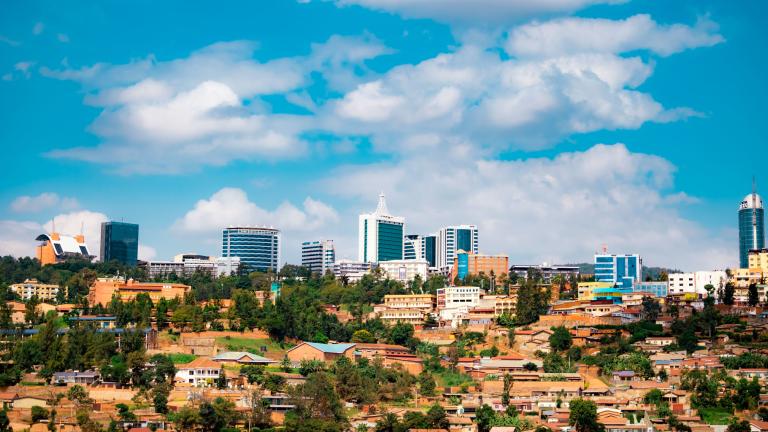
First Rwanda Multilevel Dialogue
The first multilevel dialogue for Rwanda focused on the theme of new-age infrastructure to build flood resilience and enhance biodiversity in Rwandan cities.
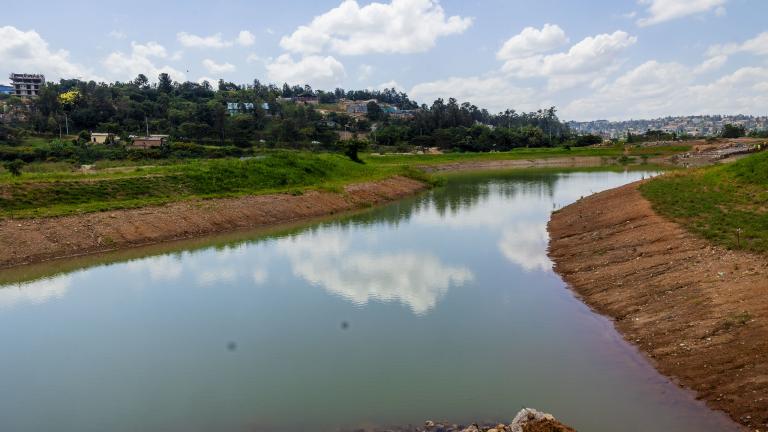
Breathing New Life into 5 Kigali Wetlands to Enhance Climate Resilience and Quality of Life
These formerly degraded sites will soon welcome visitors for recreational and educational opportunities—while alleviating flood challenges for the city.
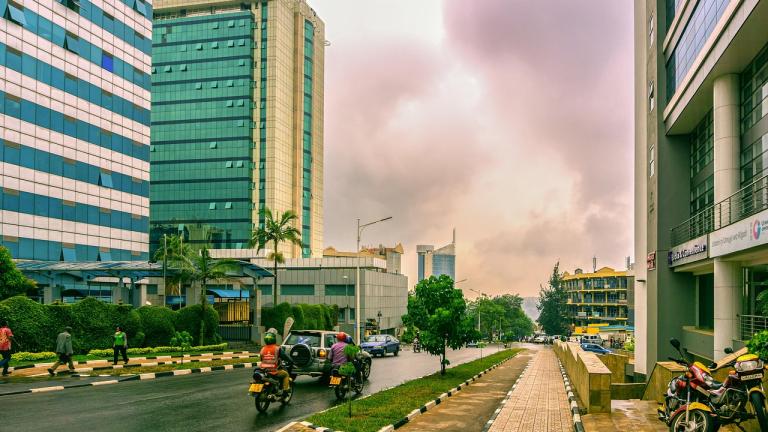
Rwanda Second Multilevel Governance Dialogue - Local Government Consultation on NDC 3.0 Development
This dialogue will strengthen local government involvement in shaping and implementing the country’s NDC 3.0, fostering national-local collaboration for ambitious climate action.
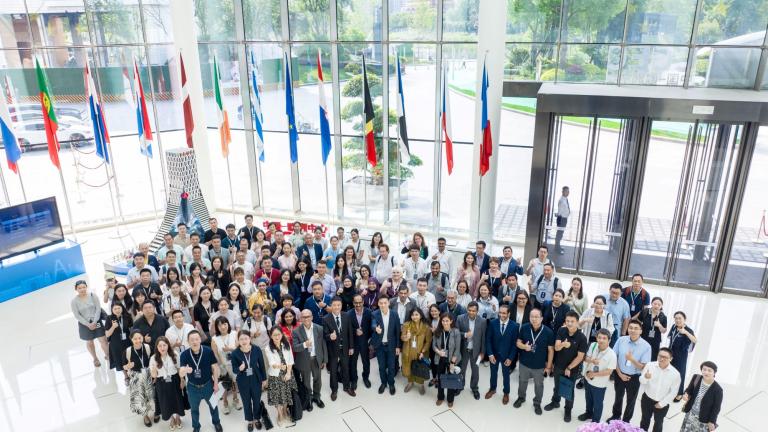
Empowering Cities to Shape Climate Goals: Lessons from the UrbanShift China City Academy
On 1-3 July 2025, the Academy brought together over 120 participants from cities in China, India, Malaysia, Mongolia, and the Philippines, alongside national government representatives.
